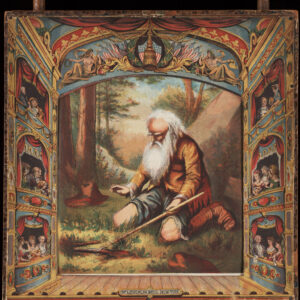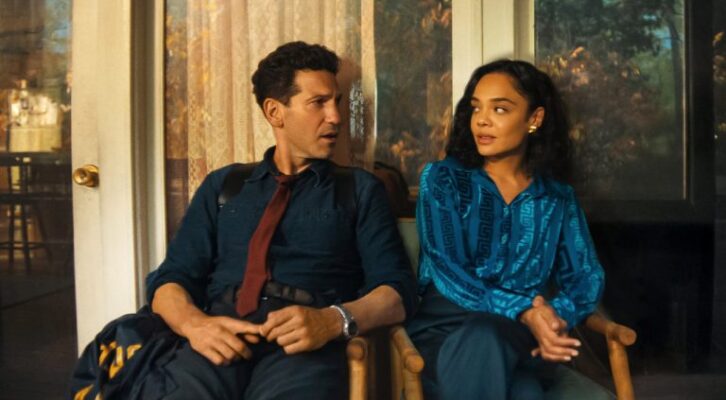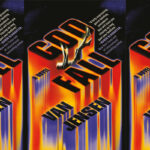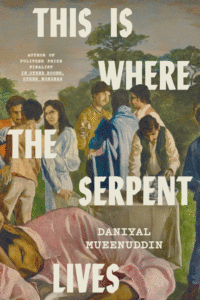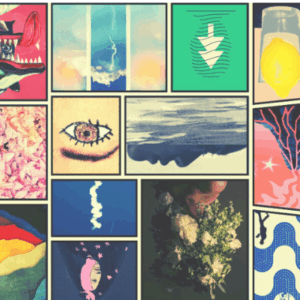
The Writer's Curse, The Writer's Blessing
Rachel Louise Snyder on the Burden of the Memory Keeper
Some time ago, a man with whom I had been involved told me he’d erased all of our email correspondence and texts; he advised me to do the same, hailing them as “apocryphal.” It was one thing for it to have ended (all relationships end one way or another, Ann Patchett wrote in The Story of a Happy Marriage), but quite another to rid one’s life of any lingering physical evidence that it had even once existed.
A bolt of pain shot through me when I got his text, sitting as I was on the Amtrak train, watching the blurred telephone cables and skeletal shrubbery of the Maryland landscape race past. I felt my body go hot, felt my periphery dissolve for a moment. I closed my eyes, let the rhythm of the train carry me, as if I could expunge the feeling if I just contracted enough.
What came to mind, when the heat of my body subsided, was a sandwich baggie full of folded up notes from my fifth grade boyfriend that I’d found months earlier in a box in my basement. “I like you like an ocean,” he wrote in one, his handwriting springy and uncertain. Did he mean without measure? Was it perhaps a nod to our Midwestern, landlocked geography? Did he understand, in some young boy way, that I held a kind of water in me? A placid surface atop a dark and complicated world. That I would grow to be a woman who sought out lakes and rivers, seasides and waterfalls. Did the note foretell a liquid self reflecting all it might ever observe?
Other noteworthy items I have kept: the half-finished macramé belt that my mother was working on the day she died in 1977. It nestles amidst skeins of yarn in a plastic flowered suitcase awash in brown, orange, ochre flowers, a time capsule of the decade in which she died. A champagne cork from the first man I ever loved on a night when I arrived at the restaurant where he worked and when I walked in the front door, he held aloft a glass of champagne and a rose and the bar patrons broke into applause at the spectacle of our young love. The handwritten letters that my husband wrote to me from his house in England; he sprayed them with Hugo Boss and wrote on blue paper. The first time I visited him there, I was buried in blue. Blue plates and towels, blue walls and bathroom tiles. Blue curtains, blue toilet paper, paintings of sailboats on water. I bought a bouquet of flowers. Red. And put them on the mantle. I keep, too, a handwritten note by the man who erased my emails in which he wrote the band name “Phosphorescent” in green ink because the beauty of his handwriting had been a revelation to me. Sometimes what is most beautiful is simply the surprise of a thing it hadn’t ever occurred to you to consider.
* * * *
Annie Dillard wrote that “writers serve as the memory of a people. They chew over our public past.” And what is the detailed memory of a life, but a kind of symbol of the age in which one lived? Is the task a burden or a privilege? Is it sacred or self-persecution? Joan Didion, tortured by the memories of her beloved deceased daughter in Blue Nights wrote of wanting to be free of them, that the memories were agony. Would eradication of our own apocrypha be a loss that would resonate beyond our individual lives, to those around us and those around them? Perhaps for those of us who have such a calling the task is only partly about holding it all; perhaps it is also discerning what deserves to be held in the first place. What might we lose if we could hold virtual bonfires of our worst memories? Extricate them and scatter the embers.
My whole life, I have kept a journal. A way to capture life as it is lived, the tactile embodiment of Kierkegaard’s apothegm to live life forward, but understand it backward. Kierkegaard understood the paradox, that the present was fleeting and the past eternally expanding. Tennessee Williams wrote it this way: “Life is all memory except for the one present moment that goes by so quick you can hardly catch it going.” Like a train hurtling through the Maryland landscape.
Recently, I reminded my husband, from whom I am now separated, of a moment when he’d been terribly unkind. I’d been in excruciating pain from three bulging disks in my cervical spine; I was crying in bed in the middle of the night, unable to move an arm without pain, a foot without pain. The more I cried, the more my body jerked and the pain spiked through me. All night, I’d intermittently cry, then doze, then the pain would startle me awake and I’d repeat the cycle, and every so often my husband—in his own sleep state—would tell me to be quiet, that all my racket was waking him. We’d recently returned to America from years living in Cambodia and in the cloud of my half-awake, agonized state, I’d forgotten not only that I now had health insurance, but also that I lived in a country with 24-hour emergency rooms. When these two facts dawned on me, I couldn’t get to the hospital fast enough. In the emergency room, they gave me a mixture of vicodin and valium, cradled my head in their hands as they softly placed me in a bed, and I wept at the pain and at the kindness.
When I recounted this moment to my husband, he looked aghast. He would never do that, he insisted. Never say such a thing. “But I have it in my journal,” I told him. I did not tell him I had written about it because it had indeed seemed so utterly cruel. “You’re lying,” he said. I knew he meant this to be less harsh than it sounded, that he meant he remembered it differently. But it had not occurred to me that the mere evidence of it having been written did not clarify the matter. Perhaps my journals offer no better truth than my own memory. Is the journal, subjective as it is, full of the fault of one’s own recall? “Memory and imagination inform each other,” Mary Karr writes. “But it’s a water line there.”
Certainly, journals—mine or anyone’s—are a record of one small life told through the lens of this absolute subjectivism, in the same way that the emails back and forth between my friend and I were subjective conversations. In broad swaths, they capture the basic events as they unfolded, the high and low points, the moments that compelled some kind of feeling. If it were fiction, would a journal not simply be the primary plot points? Was it reasonable that I felt simultaneously devastated and abandoned in the days and weeks that followed my friend’s confession about our emails? It was a signal to me of his desire to forget I’d even once been in his life, which felt not like the sadness and loss of a breakup, but like the permanence and grief of death.
Do a Google search for quotes about memory and you’ll find endless incantations on it. In Mansfield Park, Jane Austen wrote: “If any one faculty of our nature may be called more wonderful than the rest, I do think it is memory. There seems something more speakingly incomprehensible in the powers, the failures, the inequalities of memory, than in any other of our intelligences. The memory is sometimes so retentive, so serviceable, so obedient; at others, so bewildered and so weak; and at others again, so tyrannic, so beyond control! We are, to be sure, a miracle every way; but our powers of recollecting and of forgetting do seem peculiarly past finding out.” Horace Holley called unhappy memories an “insidious drug” in His Luck. In Prometheus Bound Aeschylus wrote, “Memory is the mother of all wisdom.”
The emails my friend had erased, I should mention, were not of a trivial nature. They were our running conversation on everything from love, relationships, history and courage to Marxism, politics, poetry, philosophy and music. They spanned our lives, the parents we both buried, the love and losses and mistakes that formed us, the moments most painful from our pasts, and the idealism we somehow still held even in the face of an unpredictable world. We worked in dying professions—me in journalism, him in a beleaguered activism. I felt that our common struggles to remain hopeful connected us. James Baldwin wrote that, “The responsibility of a writer is to excavate the experience of the people who produced him.” Those emails, more than anything, were pivotal in this for me, at a time in my life when I needed very much to be heard. I shared with him every large and small thought I had for months and months. Why, I wondered, would he, would anyone erase such correspondence? In those hours when one is most alone, in grief, in fear, in despair, wouldn’t he want a reminder of how he, too, had once been seen and heard, and maybe even loved? He wrote once, long after we’d broken up, that he needed a pep talk, that all he ever heard was how his life’s profession was “dying, irrelevant, anachronistic, dysfunctional… are we doing good things?” he asked me. “If so, what are we doing right? Being for reals here.”
I went back to an email he once sent, a long, impassioned description of what he did each day. I recounted his own words back to him, reminded him of what he’d told me. Then I told him a story of another friend I knew who worked underneath her enemy simply because she had the courage to not leave the fight to someone else. He bore her likeness.
I keep this exchange still, of course. Because this is the power of the memory keeper sometimes: to help illuminate the best of who we are, what we do, how we live.
Many years ago, on July 11th of 2002, I wrote an email to my closest friend. It was a kind of love letter and also a goodbye. I had decided to move to Paris from Chicago. I needed upheaval, I felt, because I was falling into routine and predictability. “We can go through our whole lives thinking that someday we’ll do something or someday will be a better time, but there will always be a reason not to do something,” I wrote to her, “…you are without question the most difficult person to leave of anyone ever in my life—with the exception of my mother. I can’t imagine my life without you being reachable, but I also can’t imagine that my life is only going to be as much as this moment. I want more, more, more… always more. I want bigger, brighter, grander. I want Paris in the spring, Chicago in the summer, Honduras in the winter, New England in the fall. You, though, I want year round. I love you. Wish me bigness.”
But then I did not move to Paris.
I moved to Phnom Penh, Cambodia, instead, and my boyfriend moved from England to be there with me and we stayed not for one year or two, but for six and we gave birth to our daughter while we lived there, and we got married in a village on the south coast of Cambodia, blessed by monks with jasmine buds and sacred water, and now we are separated. Still, I have a wedding invitation; the words were ironed onto gold silk with a purple organza overlay because in Cambodia silk was cheaper than colored paper.
This silk formed me. This wedding, in which I was both barefoot and pregnant, formed me. I keep a jasmine bud necklace, dried now and the color of desert sand, around the neck of a stone Buddha, because that jasmine formed me, and that marriage formed me, and that child formed me. And the emails with my friend formed me. The champagne cork. The macramé belt. And before I moved away, my best friend had wished me bigger, brighter, grander, in what she called the “conscious shaping” of my life. All of it is what I got. Everything I wanted, everything I tried, everything I feared doing but did anyway. “You can’t even begin to imagine how terribly much I wanted to be there with you,” she wrote to me. And now she is, these years later, just five miles away. Except I no longer use the words “bigger, brighter, grander.” Instead, I say a life with meaning and with courage and with determination, a life of participation and purpose, of both form and function. A life in which I say to my daughter, one day, “I lived the very best I could.”
The merits of being in the present are lauded by everyone from philosophers to yogis to social media memes: to live is to be here now. Mindful is the word du jour. But what of those of us who live simultaneously here and elsewhere, one half of us in the past and the other half in the present? Those for whom the act of remembering feels like a calling?
Tobsha Learner wrote that memory was “the great deceiver” in The Witch of Cologne. But, then, Kierkegaard surely would take issue with such a stance. Was my friend of the virtual bonfire living forward, while failing to look backward? Or was I keeping myself from moving forward by only looking back? And if I am one of the memory keepers of my age, does that not require a careful balance of living in both present and past concurrently, a recipe as mysterious as the sound of an ancestor’s voice? To ponder every small and large element about love and loss, while gathering more, more, more as we go along?
This, it seems to me, is the role of the memory keeper. A way to access all of it, the love and the loss, the gains and the terrible ways in which we feel destroyed, but then later survive. Perhaps it is simply that we hold the testaments to human endurance.
So I do what James Baldwin commanded. And Annie Dillard. And Tennessee Williams, and Aeschylus. Because to let go is to release some essential experience of my life, evidence of who I was in a certain moment and how I lived, for isn’t this the story of us all? Mine, yours, and yours, mine. “Our memory is our weather,” writes Meghan O’Rourke, in The Long Goodbye, “and we are re-created by it every day.”
I keep the emails, his to me, mine to him. I keep the scrap of paper with “Phosphorescent.” I keep the fifth grade notes and the love letters. I keep the silk and the jasmine, the journals and the macramé belt. I guard it, carrying it perhaps for those who have other callings, but still, someday, may need to remember the particular manner in how it had all once been quite something.
Rachel Louise Snyder
Rachel Louise Snyder is the author of Fugitive Denim: A Moving Story of People and Pants in the Borderless World of Global Trade, the novel What We’ve Lost is Nothing, and No Visible Bruises: What We Don’t Know About Domestic Violence Can Kill Us. Her work has appeared in the New Yorker, the New York Times Magazine, the Washington Post, and on NPR. No Visible Bruises was awarded the Lukas Work-in-Progress Award, the Hillman Prize for Book Journalism, and the New York Public Library’s Bernstein Award for Excellence in Journalism. It was a finalist for the Kirkus Prize, the National Book Critics Circle Award, the LA Times Book Award, and the American Bar Association Silver Gavel Award, and was named one of the top ten books of the year by the New York Times. Snyder is currently an Associate Professor of Creative Writing and Journalism at American University, and in 2020–2021 she will be a Guggenheim Fellow. Follow her on Twitter at @RLSWrites









